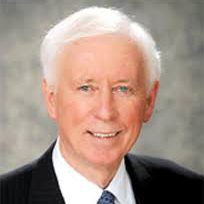21st Conference of the Parties of the UN Framework Convention on Climate change (COP21)
Climate change is the greatest global health challenge of the 21st century. It is important that the 21st Conference of the Parties of the UN Framework Convention on Climate Change (COP21) talks planned for December in Paris include an understanding of this reality.
Extreme weather events such as intense storms, heat waves, droughts and floods will be abrupt and the consequences will be acutely felt. They will result in deaths or physical injury and illness such as heart attacks, strokes and dehydration. They also cause long-term mental heath impacts greatly increasing the risk of depression and anxiety.
These are likely to become more intense as the climate changes. In Australia, the number of “dangerously hot” days (where outdoor work and play is considered hazardous) is forecasted to rise dramatically from four to six days per year to 33 to 45 per year by 2070.
And heat waves in the Persian Gulf region are expected to approach “intolerable” levels in the decades ahead due to man-made global warming. The expectation is that extreme heat that might occur now for one out of 20 days, will be the normal summer day by 2070.
More obvious health impacts like these are only the tip of the iceberg. Indirect health impacts which include changing patterns of infectious diseases such as dengue and malaria, or increases in both water scarcity and water-borne diseases.
They also highlight impacts such as malnutrition arising from reductions in agricultural production. And wild fish population collapse in some parts of the world’s oceans will increase food insecurity, especially for the world’s poor. Expectations are that crop failure related to climate change will have a profoundly negative impact on nutrition around the world.
An additional 170 million undernourished people in the world by the end of this century will also cause a rise in nutritional stunting in much of the world, with sub-Saharan Africa experiencing a 31-55% increase in severe stunting in children.
The growing certainty of scientific consensus surrounding these alarming health implications alone are enough to demand the mainstreaming of climate change as a central determinant of human wellbeing, relevant to all health professionals.
However, this isn’t the full picture. Health and wellbeing also provide an important impetus for tackling climate change, and many of the mitigation strategies available yield massive health and economic benefits. These are experienced because many of the drivers of climate change such as over-consumption of fossil fuels, poorly-designed cities, and a sedentary lifestyle also contribute to many of our biggest health problems such as obesity, road deaths, chronic obstructive lung disease and heart disease.
A recent WHO report estimates that the total number of deaths due to exposure to air pollution reached 3.7 million in 2012, representing 6.7 per cent all deaths globally.
Simple measures, the social determinants of health, like reducing air pollution by switching to cleaner, low-carbon energy sources, designing our towns and cities around walking. cycling rather than cars and moving towards diets lower in animal fat, would lead to major improvements in health.
In the EU alone, coal-fired power plants are responsible for 18,200 premature deaths and 4 million non-working days, with the total health cost of coal combustion estimated at €42.8 billion per year.
The Health Energy Initiative, a global collaboration of health professionals, health organizations and health researchers, states that the COP21 represents an opportunity for health professionals and organizations from across the globe to join forces and support a transition to clean, renewable energy. This essential shift can at once reduce climate change’s myriad impacts and protect public health from fossil fuel-generated pollution. http://www.healthyenergyinitiative.org/get-involved/platform/
Physicians should encourage:
- Facilitate education, conversation, and action on the health impacts of energy choices in our institutions, communities, and countries.
- Advocate for health impact assessments and health economic evaluations to be integrated in decision-making on energy projects and energy policy.
- Where our institutions have financial resources invested in the market, consider divesting these resources from fossil fuels.
- Lead by example by investing in clean energy solutions in health offices, health centers, hospitals, and health systems, and by using health care’s purchasing power to decarbonize the health care supply chain.
Local and national governments as well as international institutions should:
- Cease the deadly and costly dependence on fossil fuels by eliminating fossil fuel subsidies, avoiding new coal projects, and phasing out coal-fired power generation.
- Prioritize and finance development based on clean, renewable energy sources in order to protect public health.
- Reach an international agreement that fosters the transition to clean, renewable energy by, in part, transferring technical and financial resources to countries least able to make this transition.
- Invite greater health sector participation in energy and climate decision-making at all levels of governance.
- Require health impact assessments to be conducted by qualified experts as a part of statutory requirements for the permitting and siting of new energy projects.
- Include considerations for health impacts, as well as health costs and benefits, in policy, legal, and financial decision-making on energy projects.
As representatives of the health sector, we believe that by addressing the health impacts of energy choices, our communities, countries, and the entire world can achieve better, more cost effective, and more equitable health outcomes, together with universal energy access and a healthy climate.
Cecil B. Wilson, MD, MACP
Past President World Medical Association
WMA Past Presidents and Chairs Network (PPCN)

